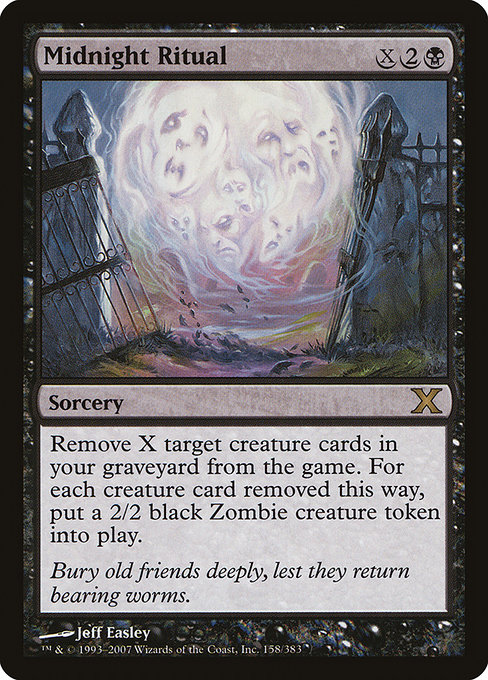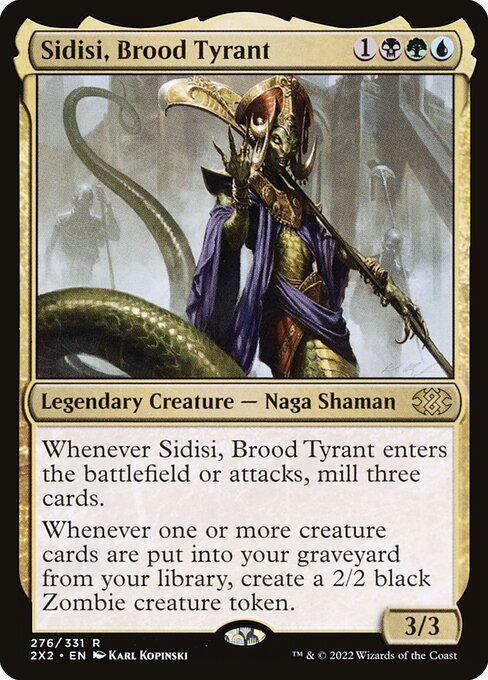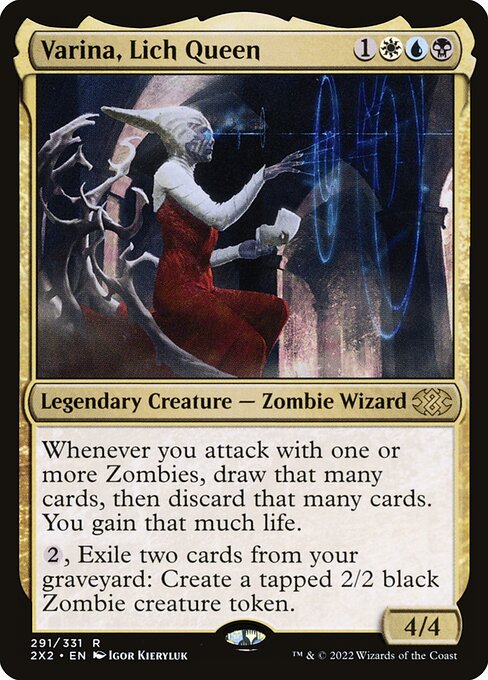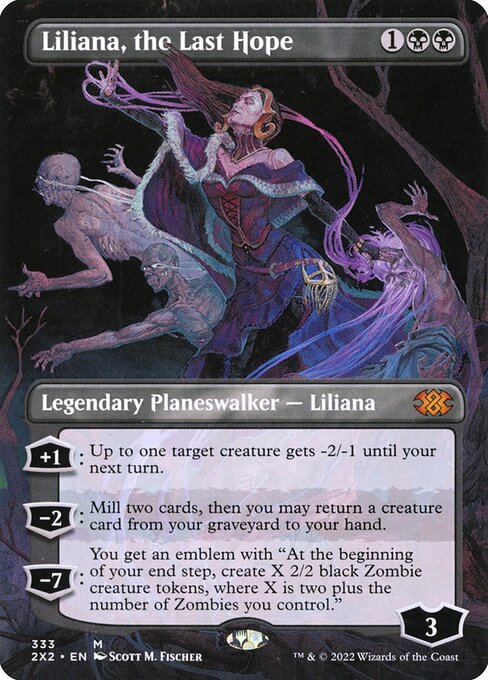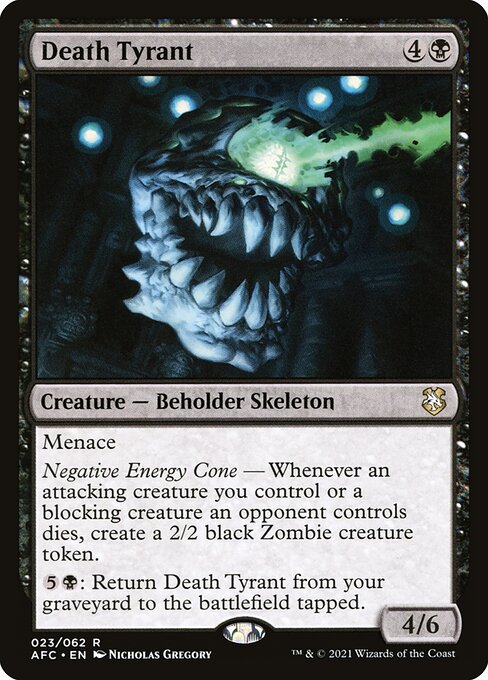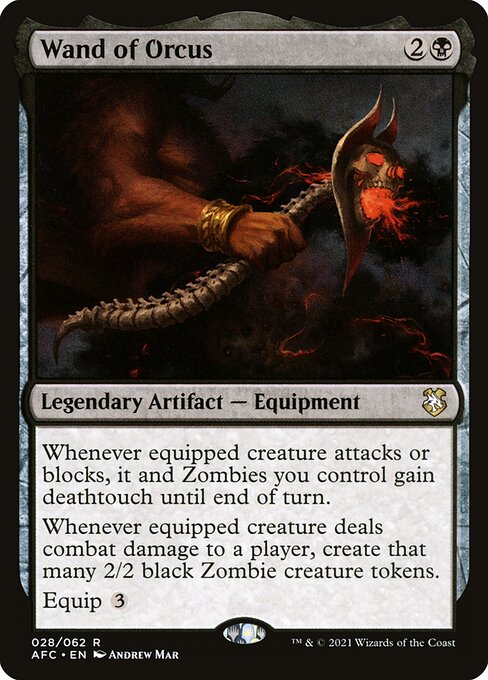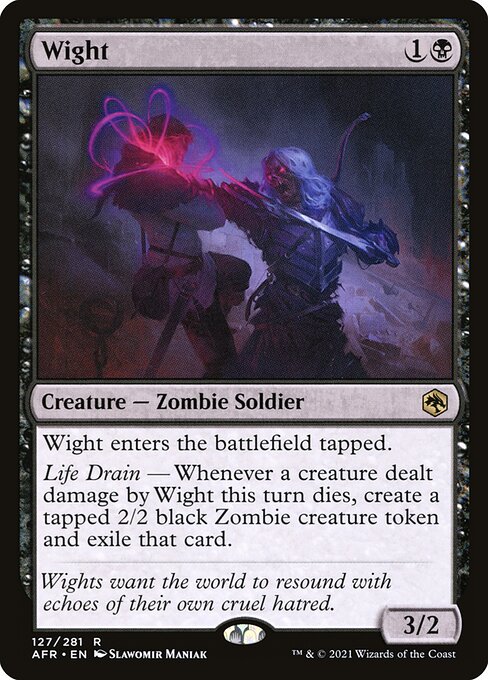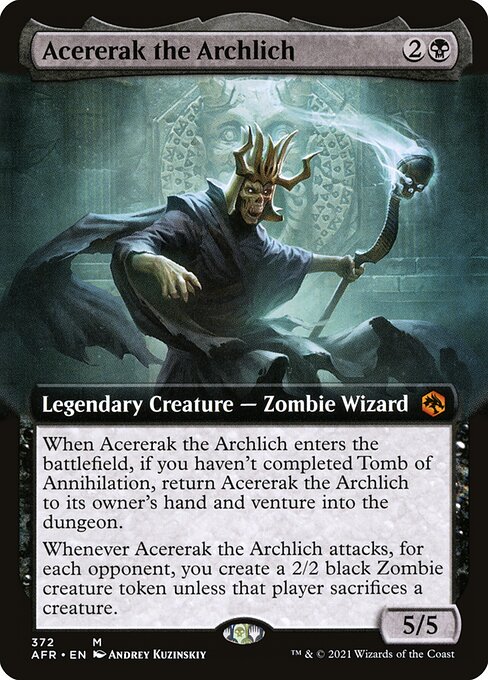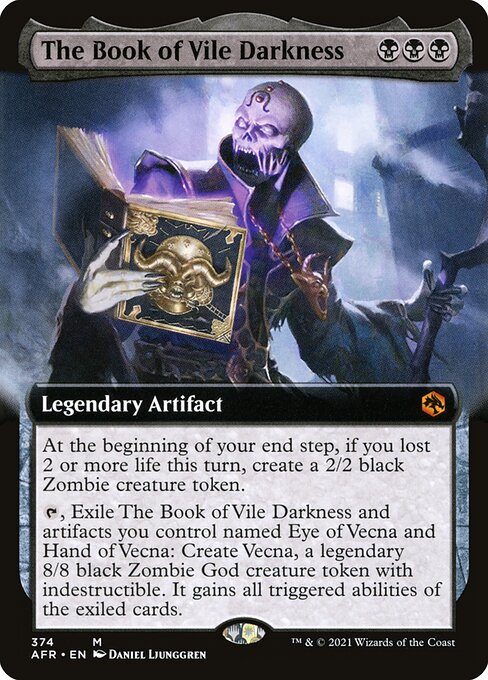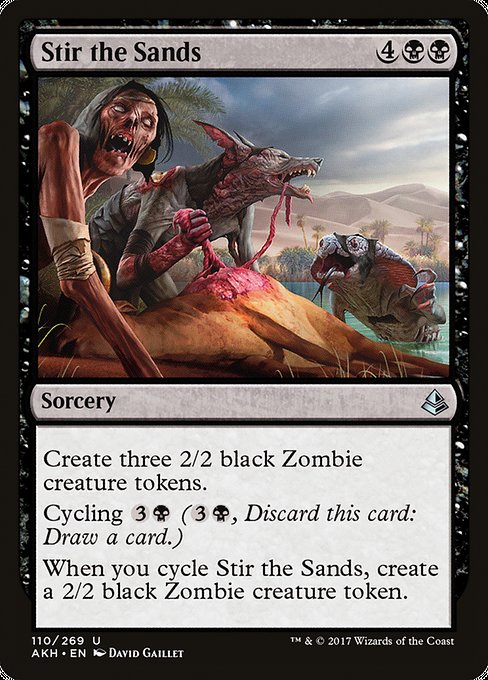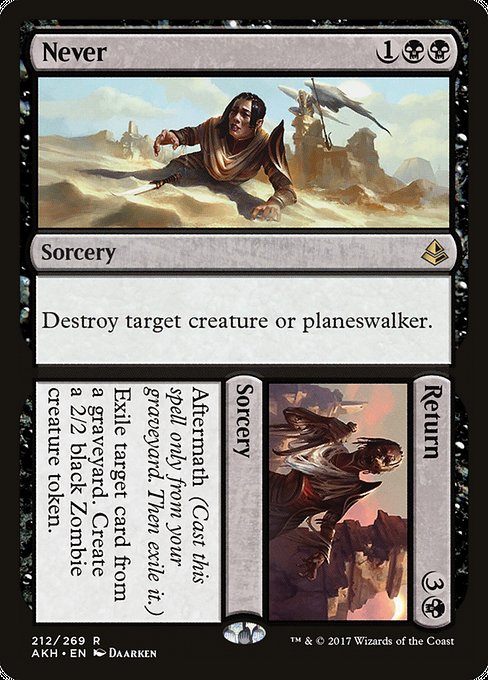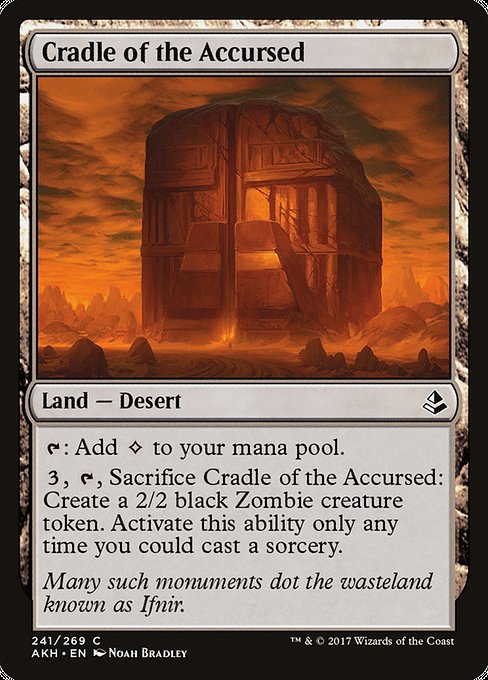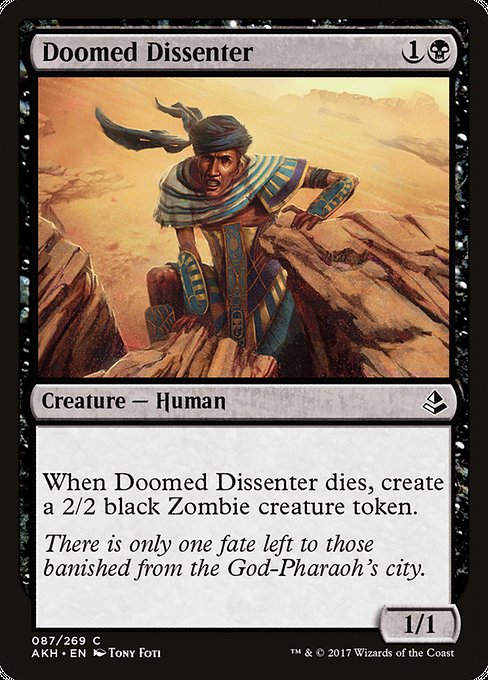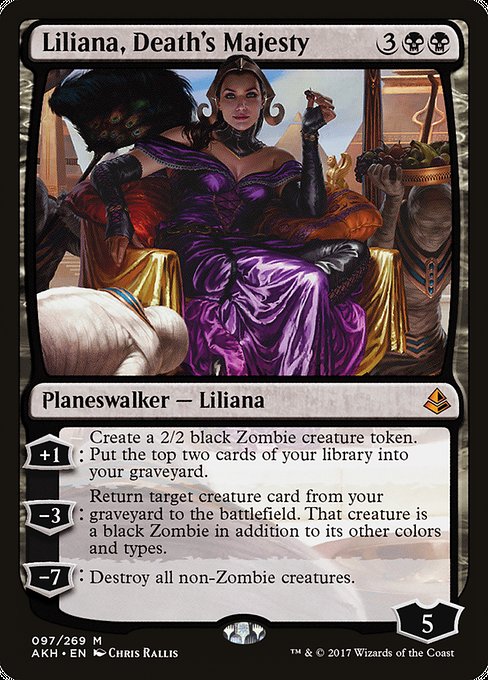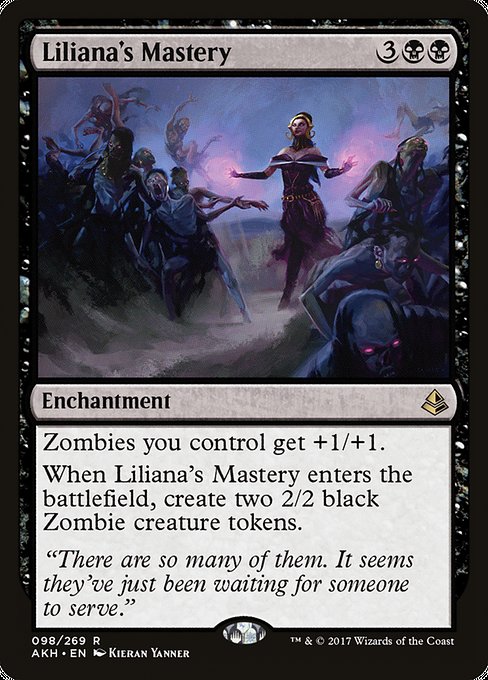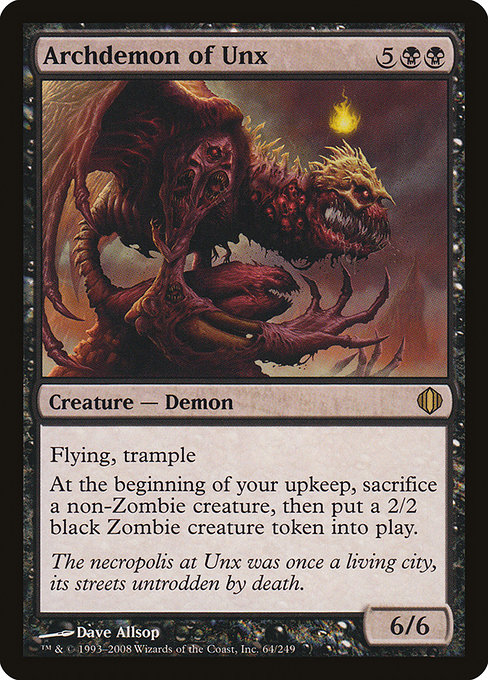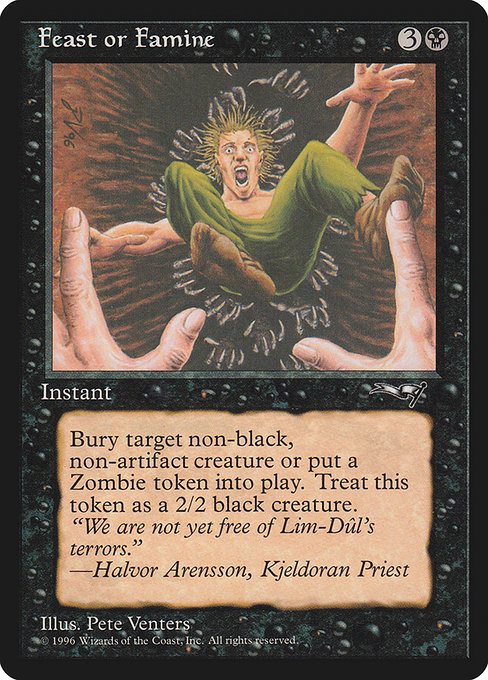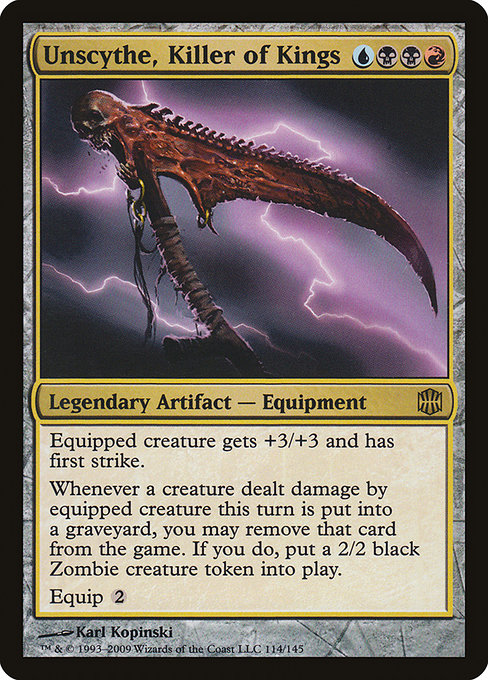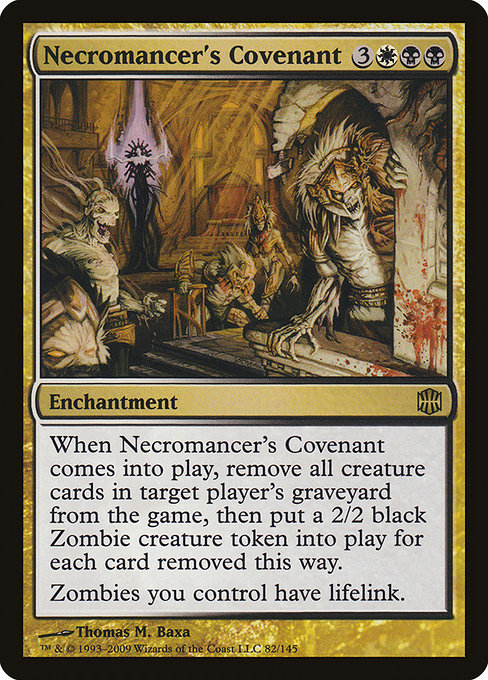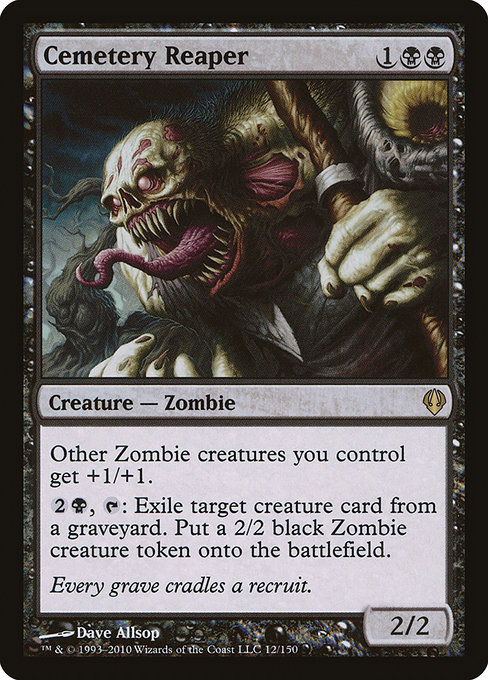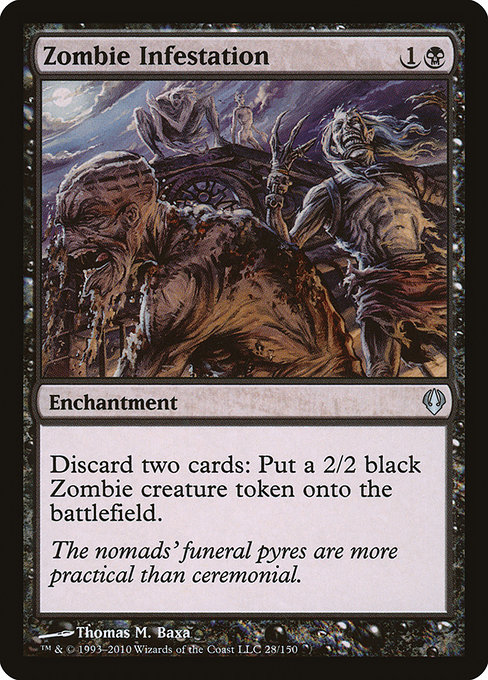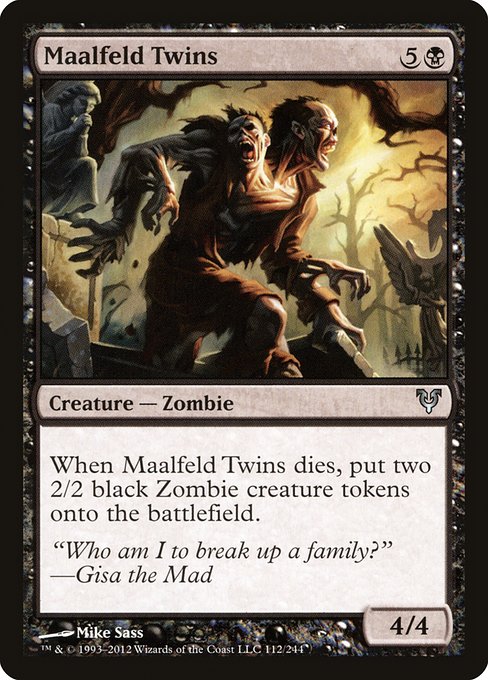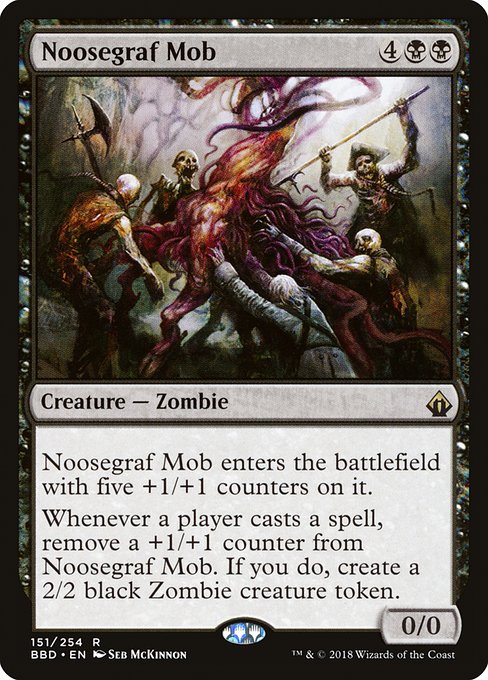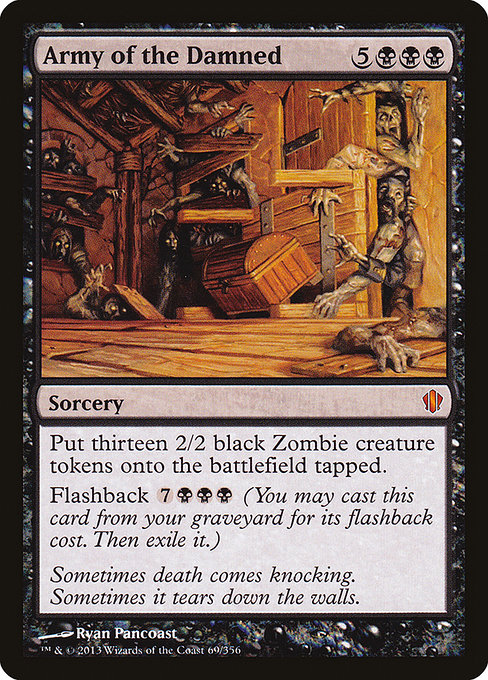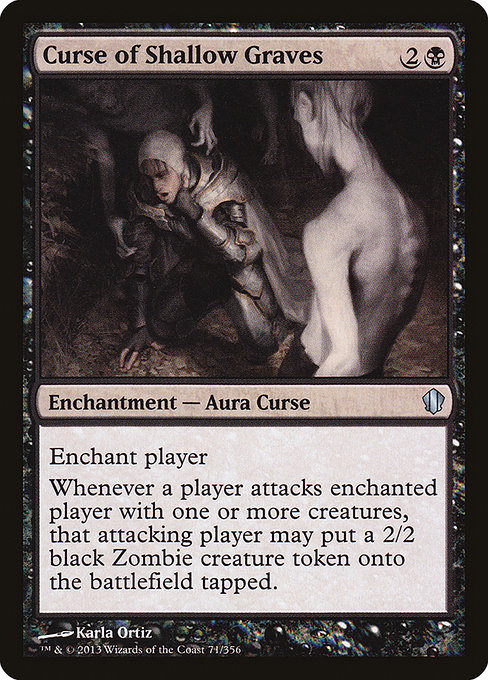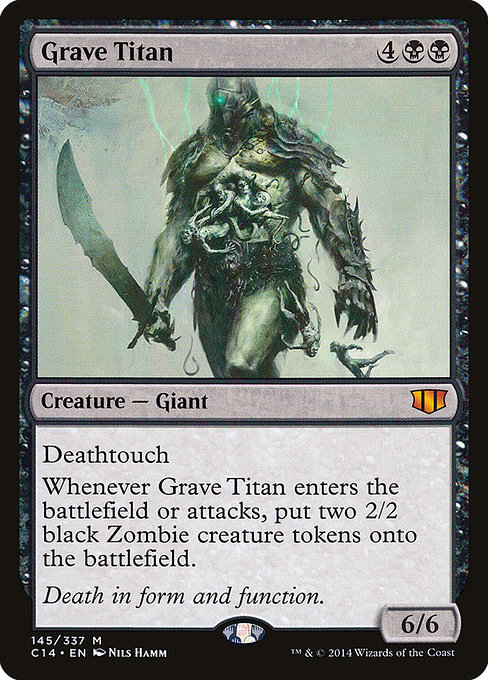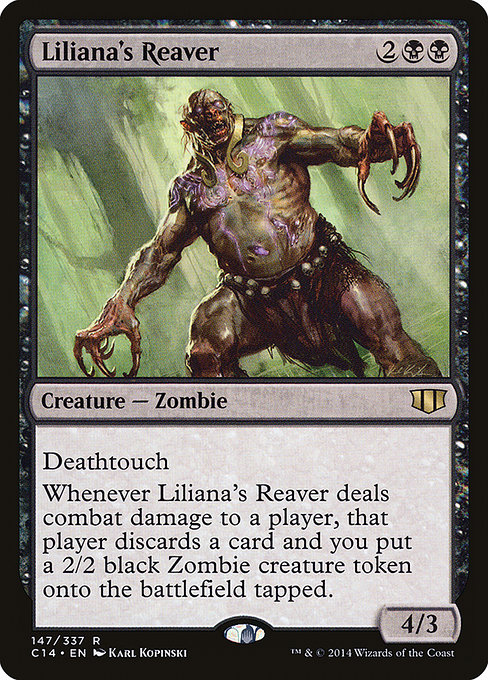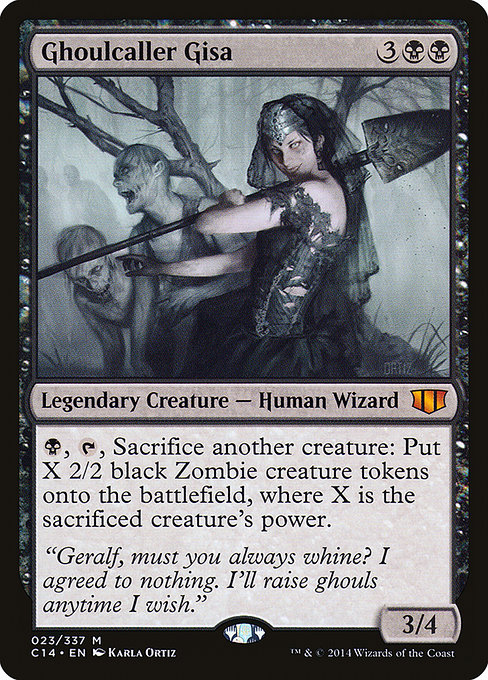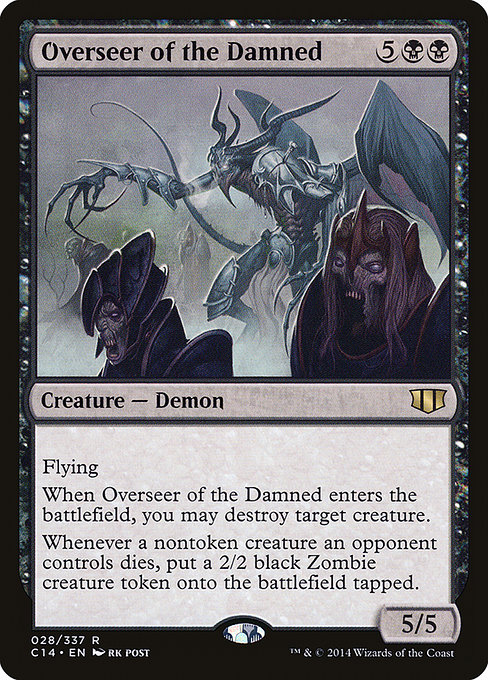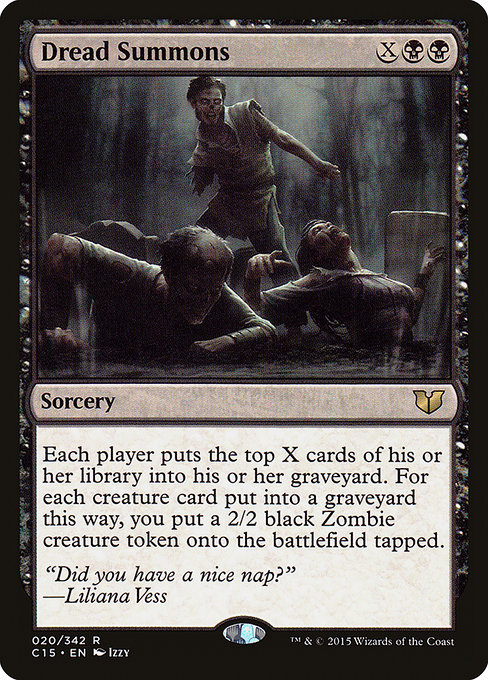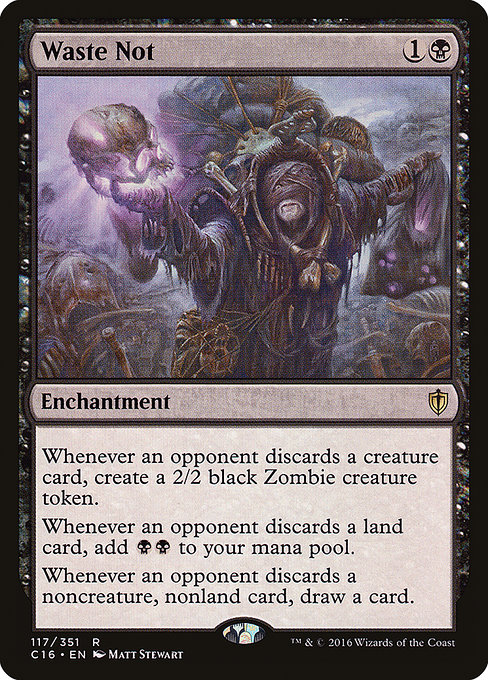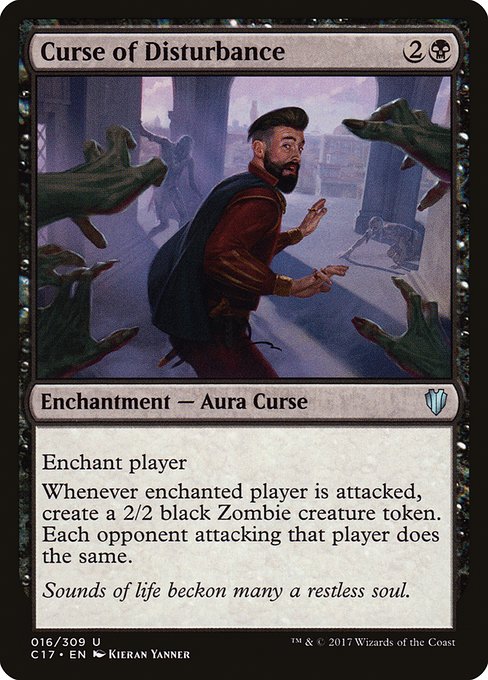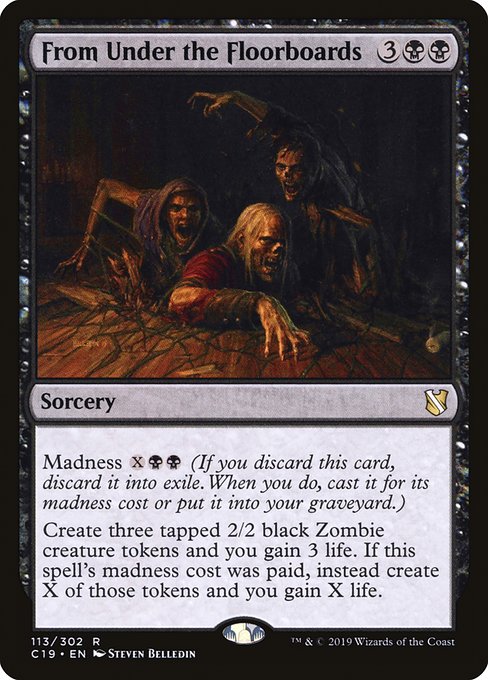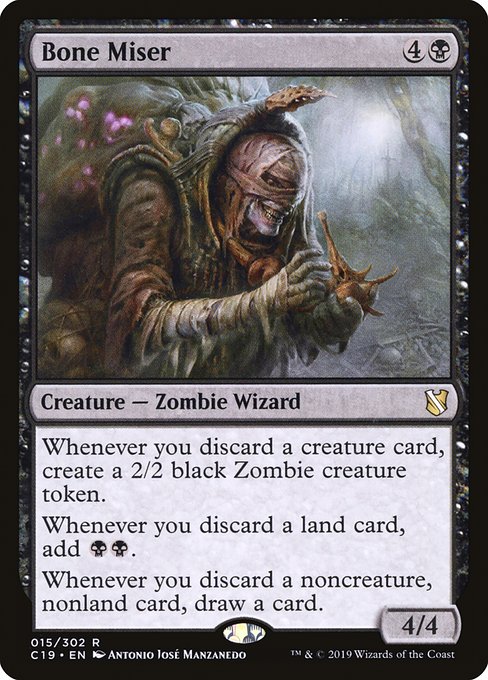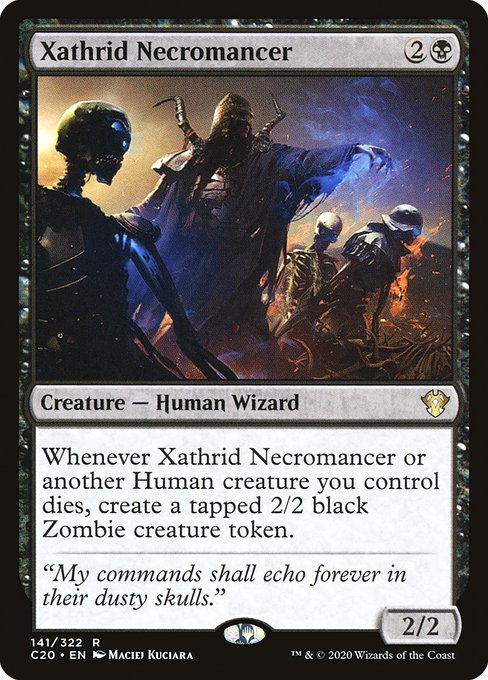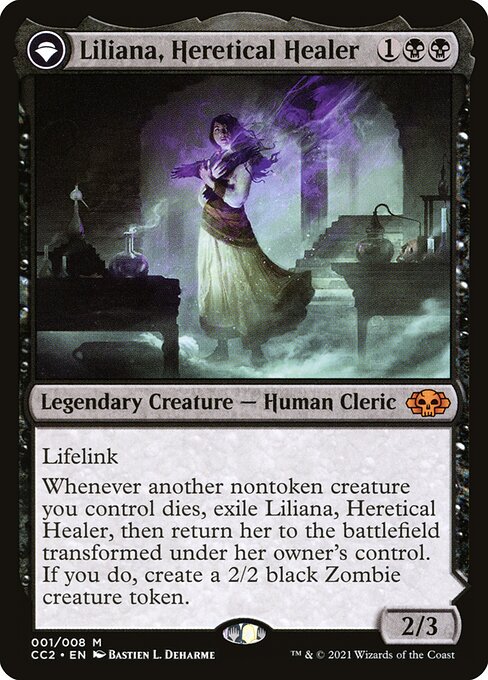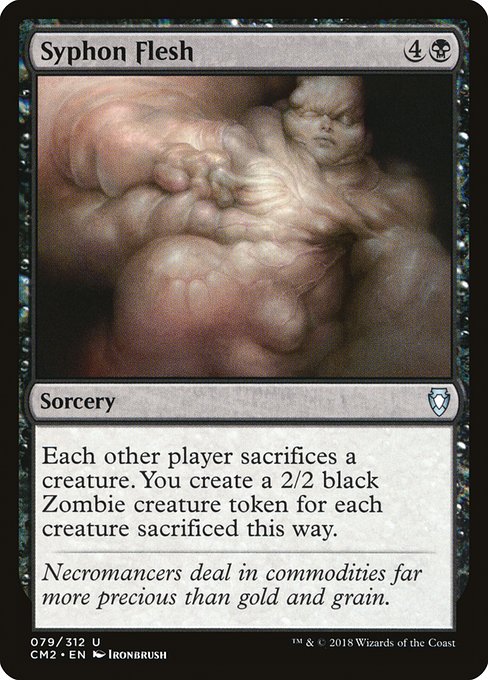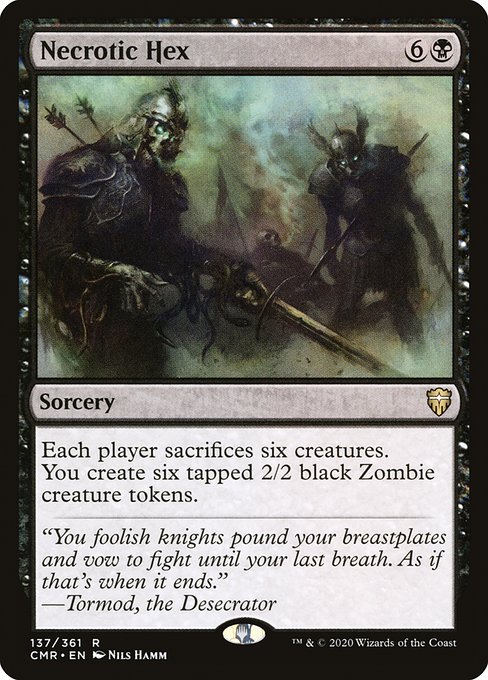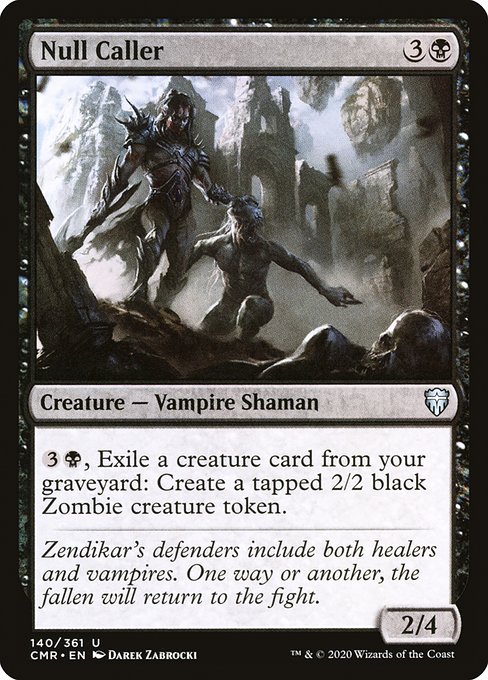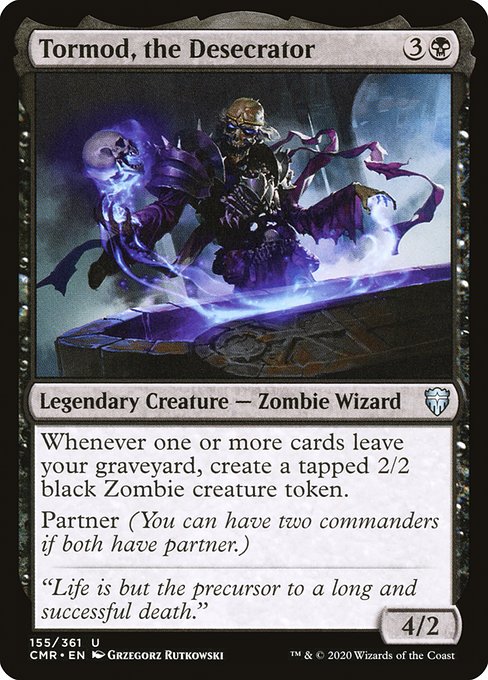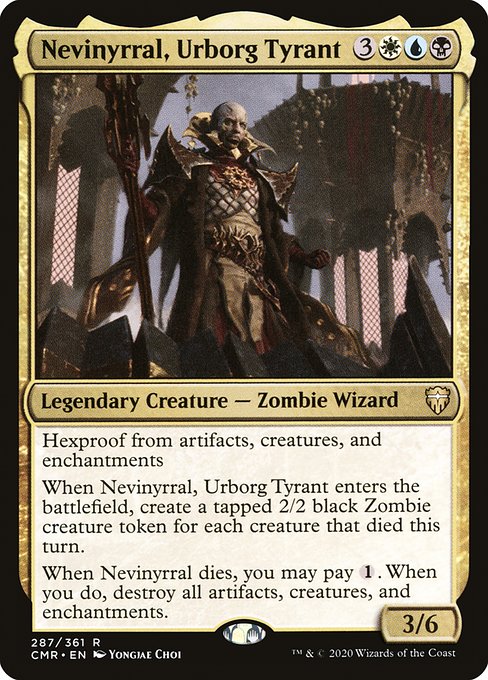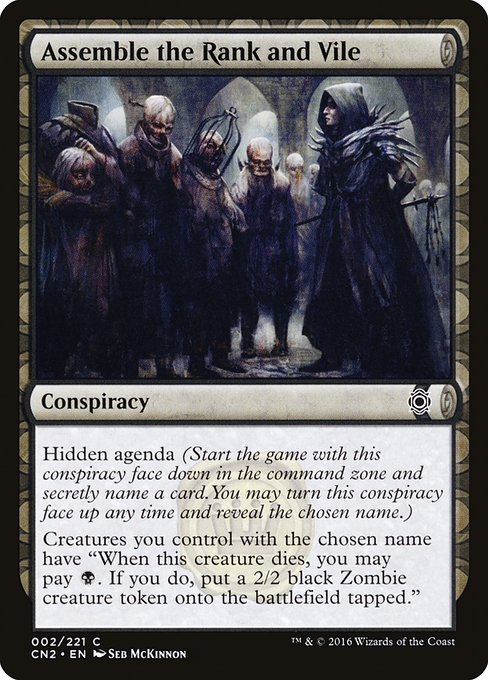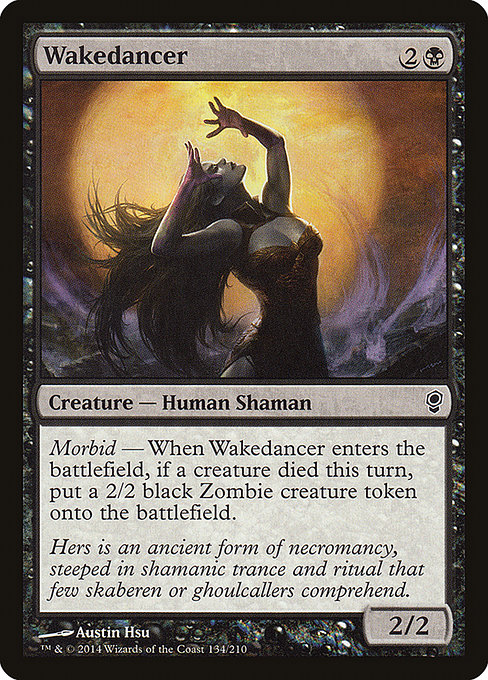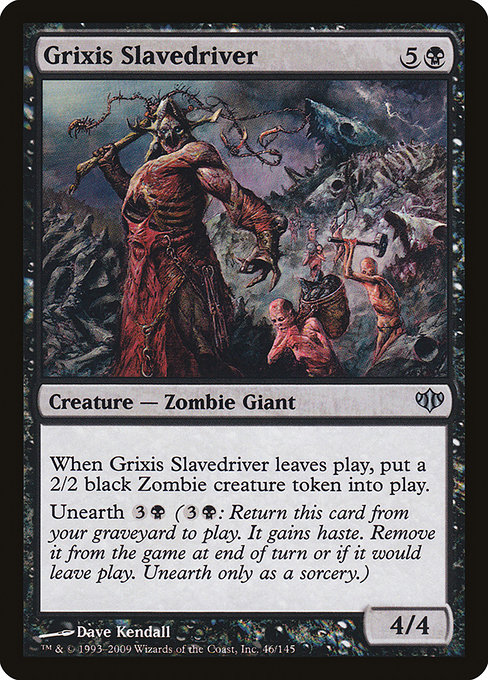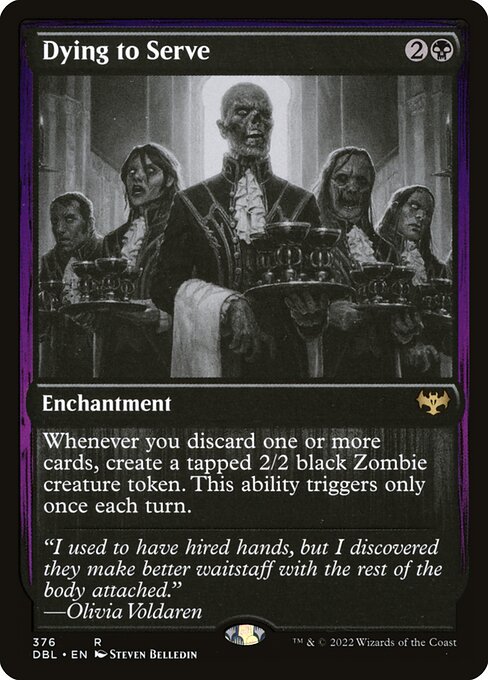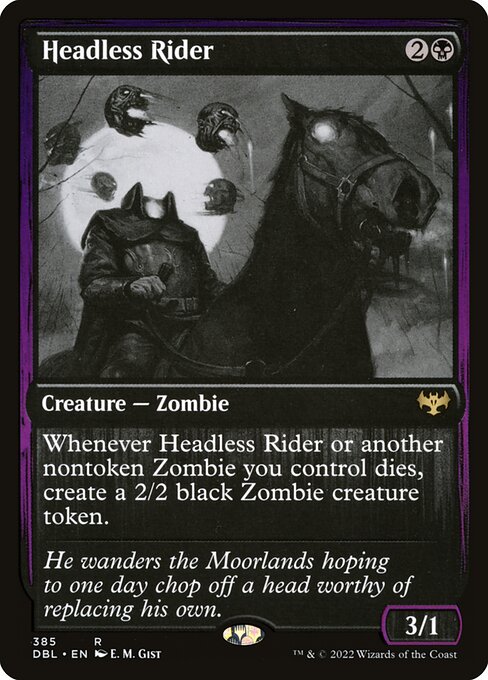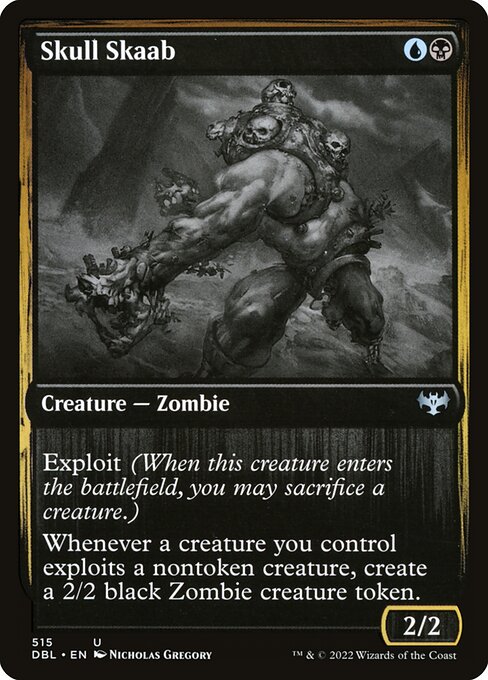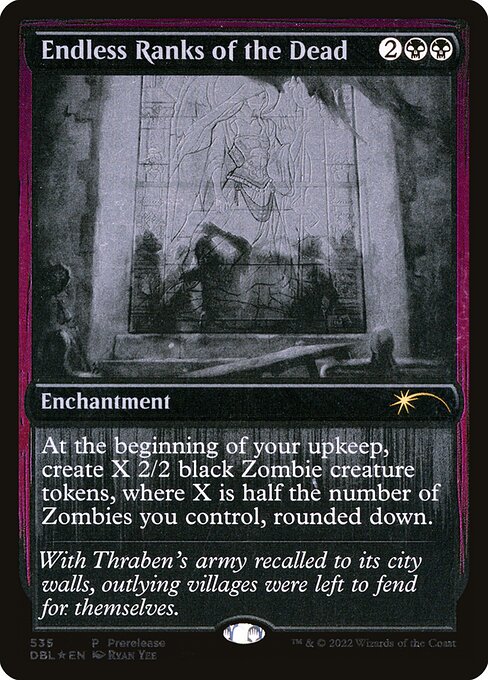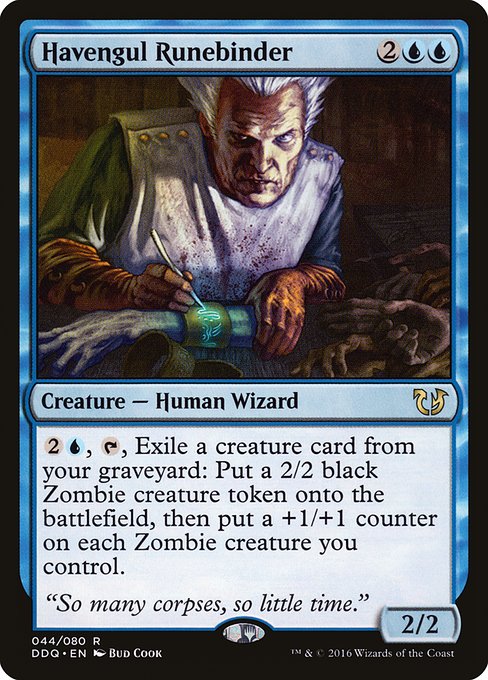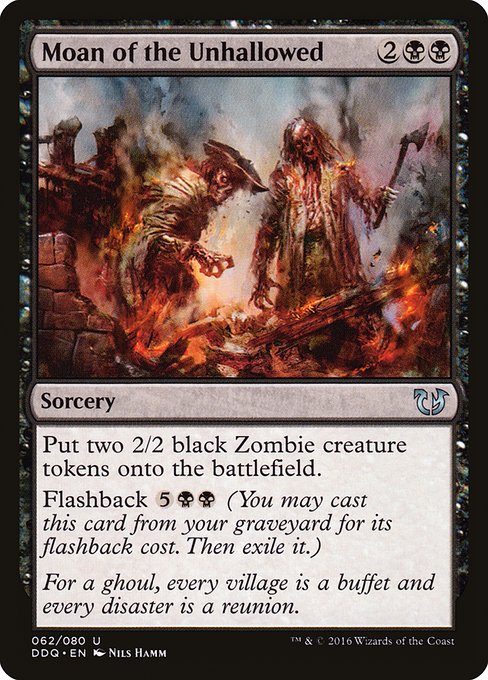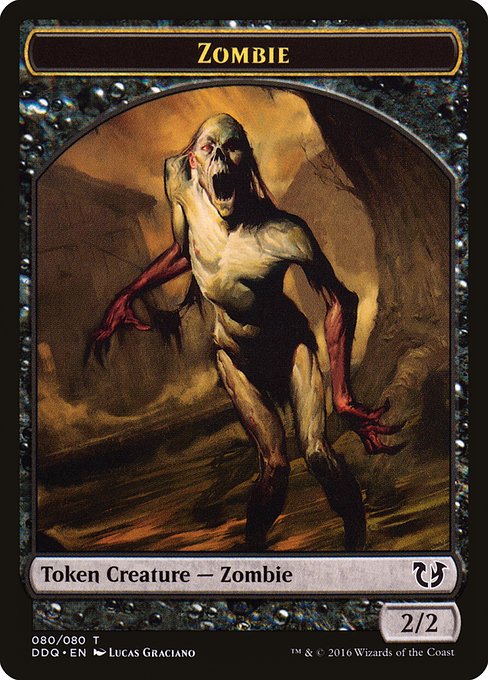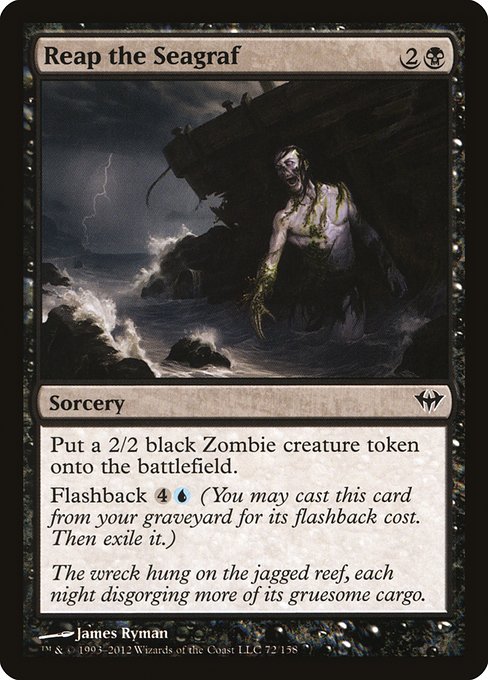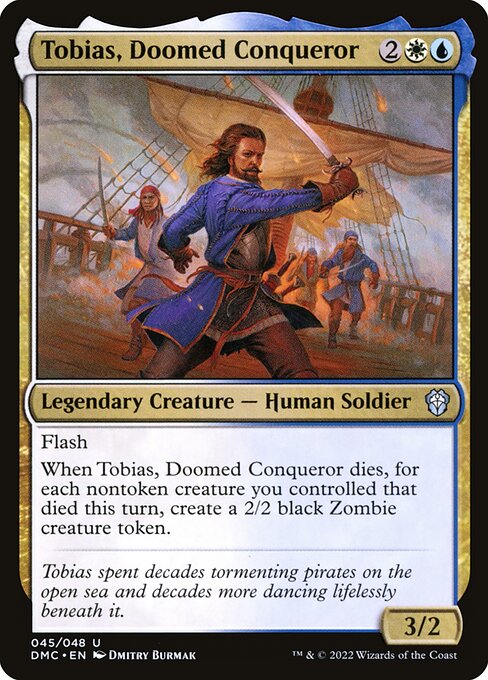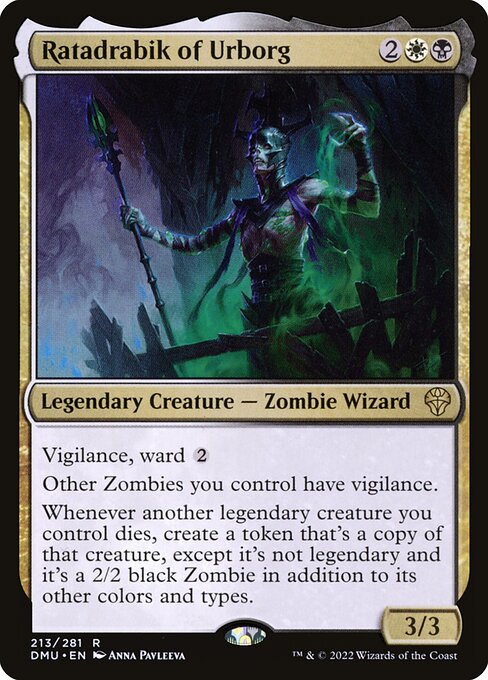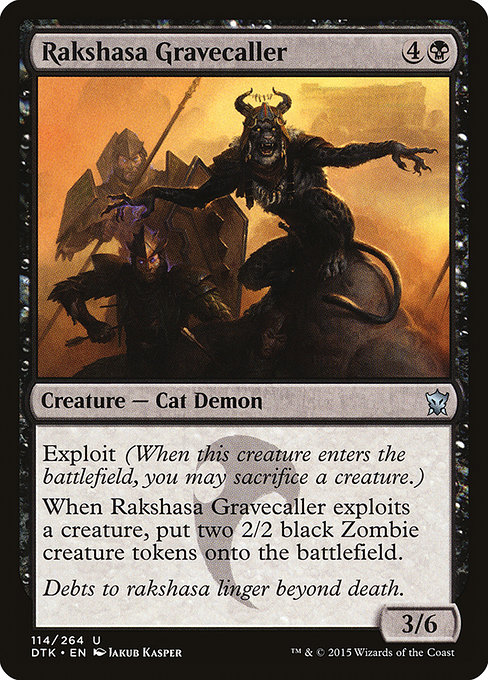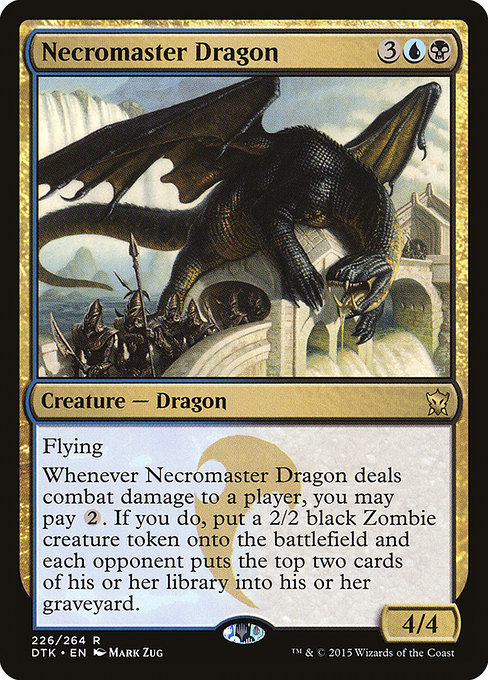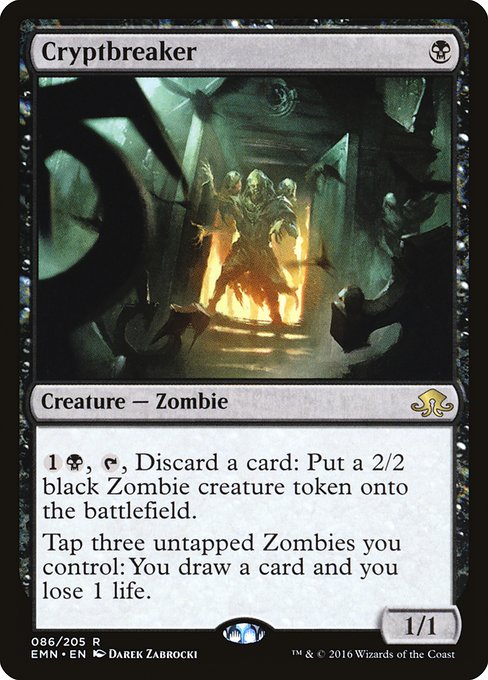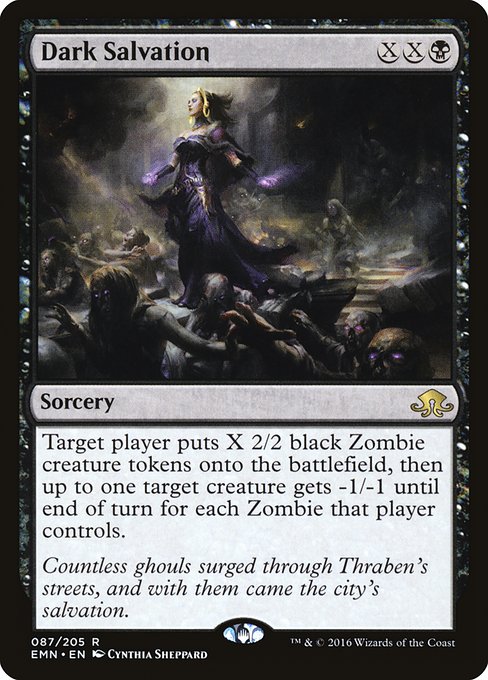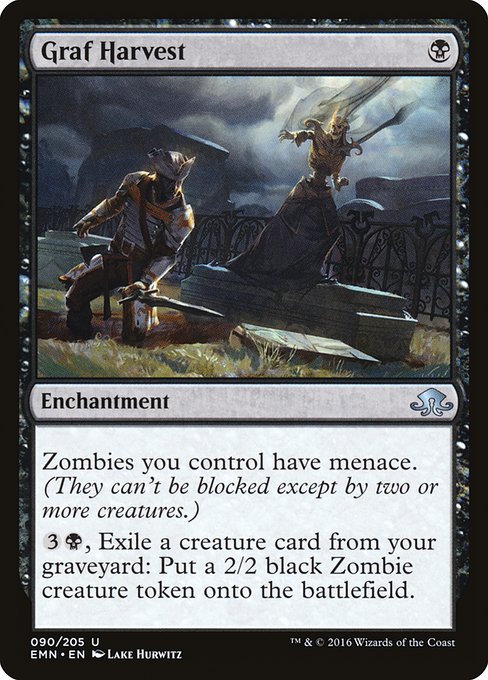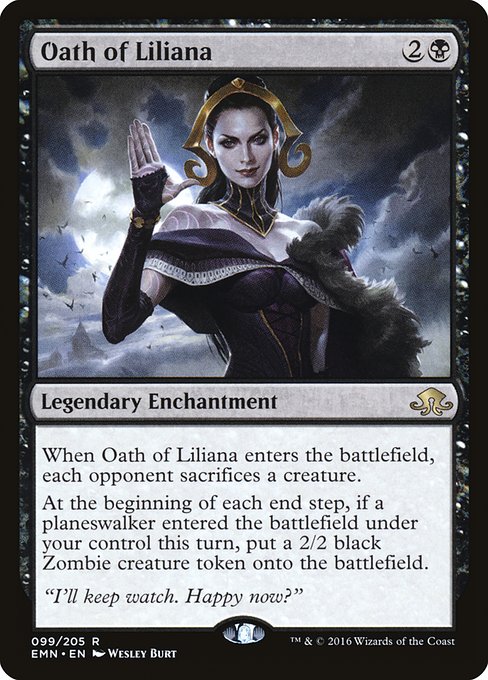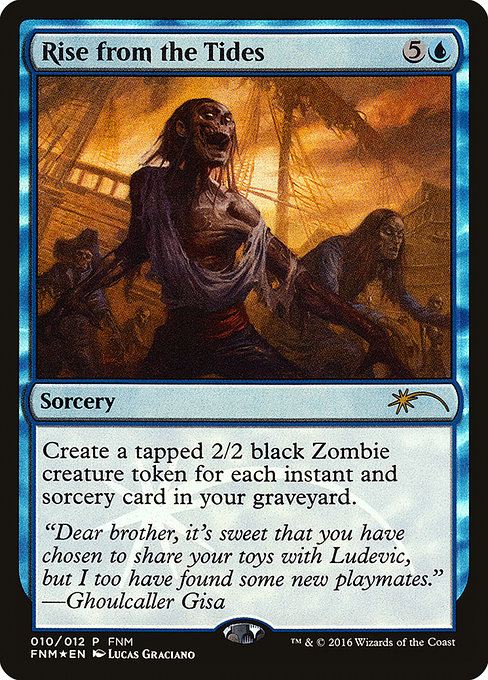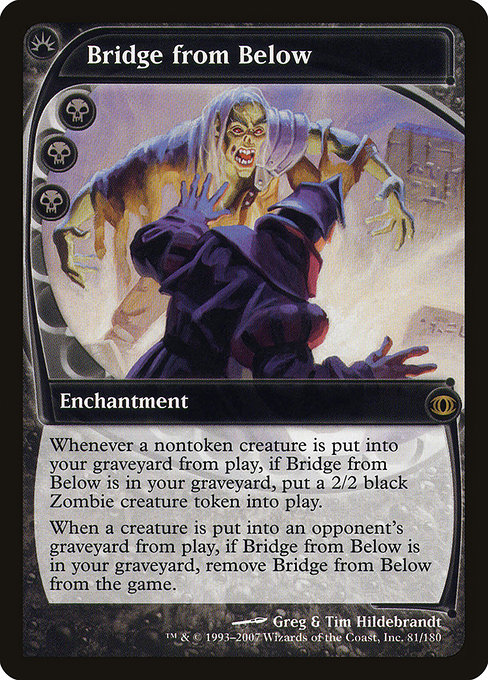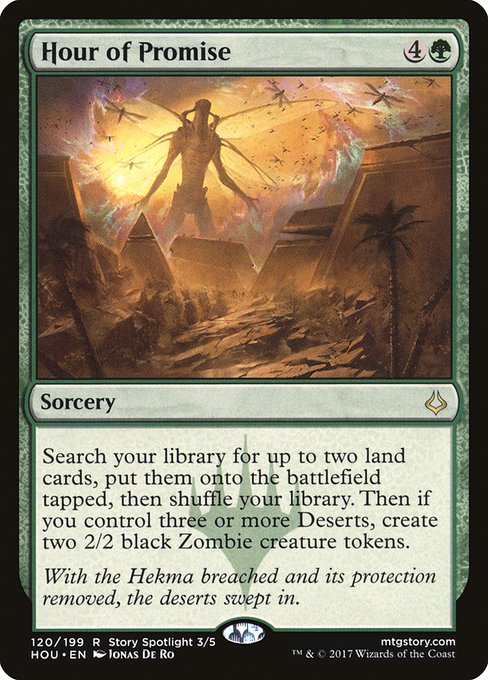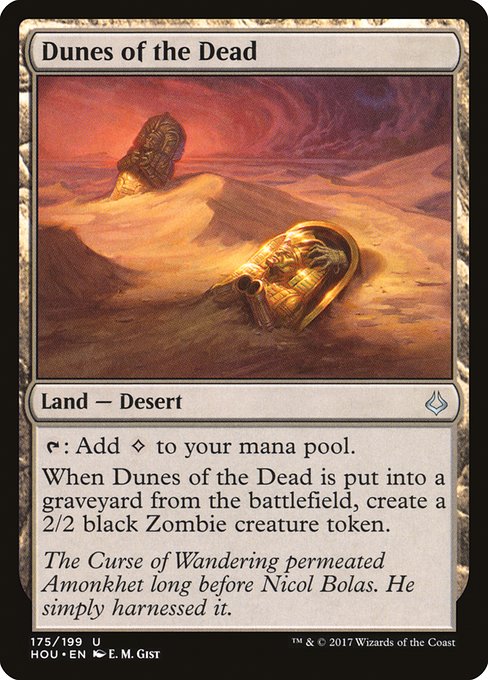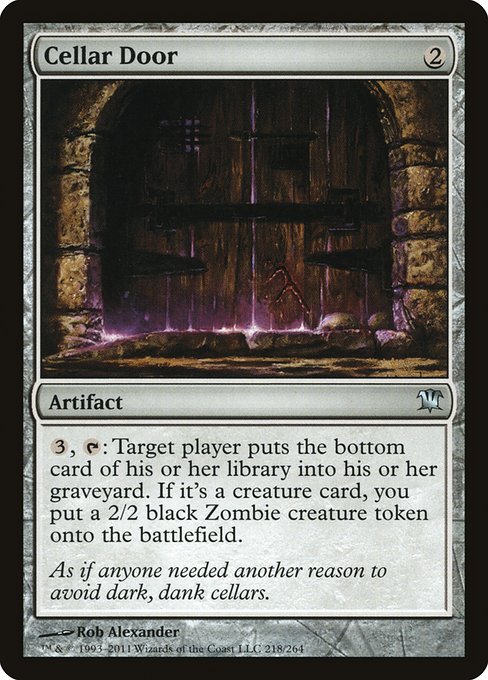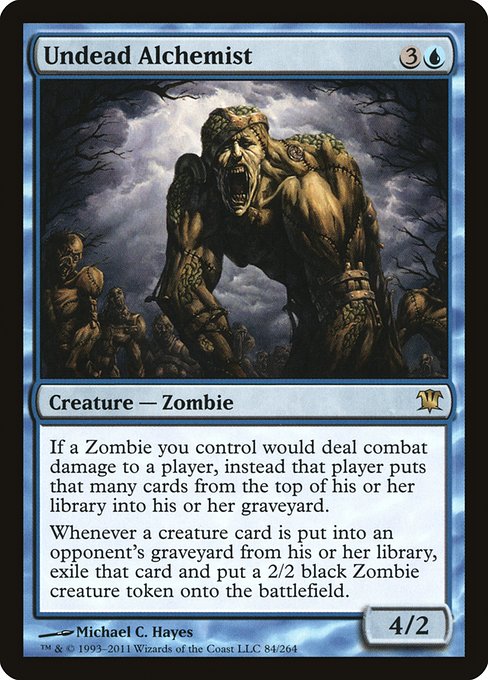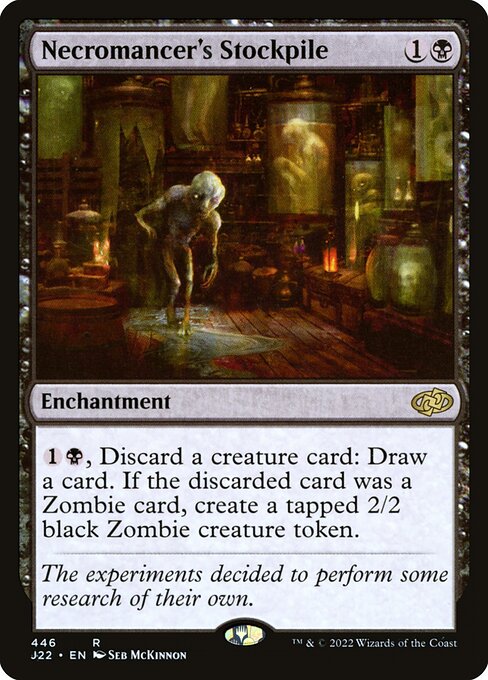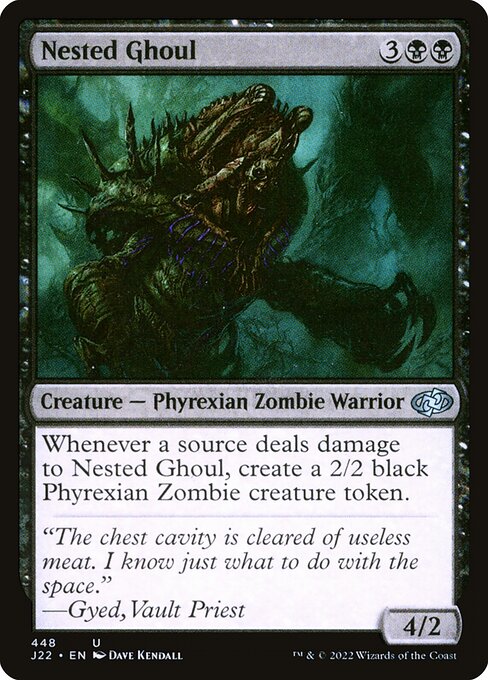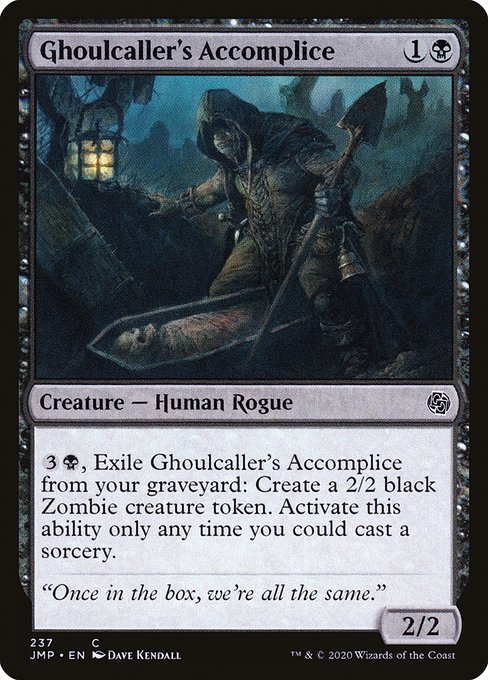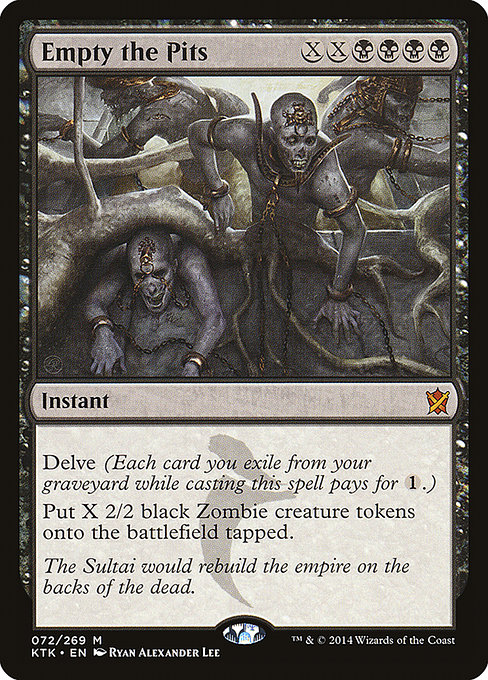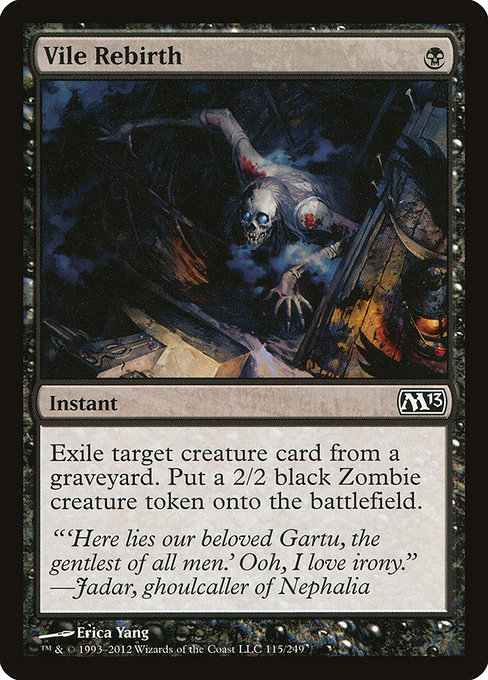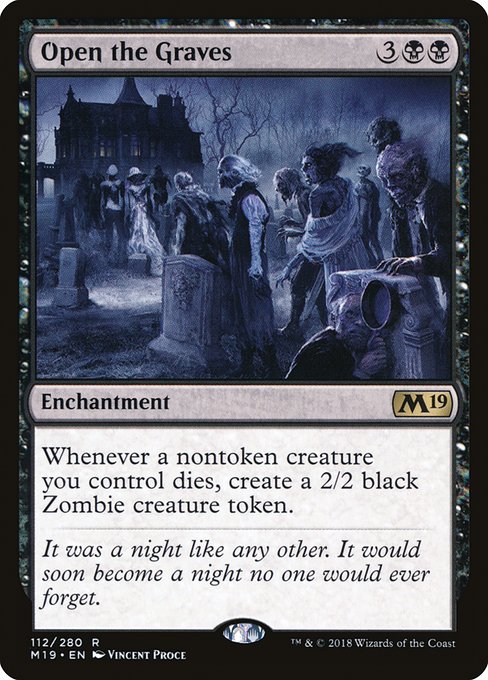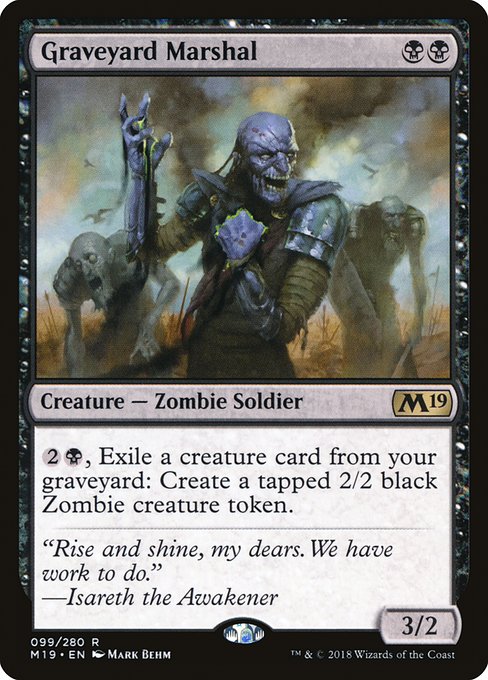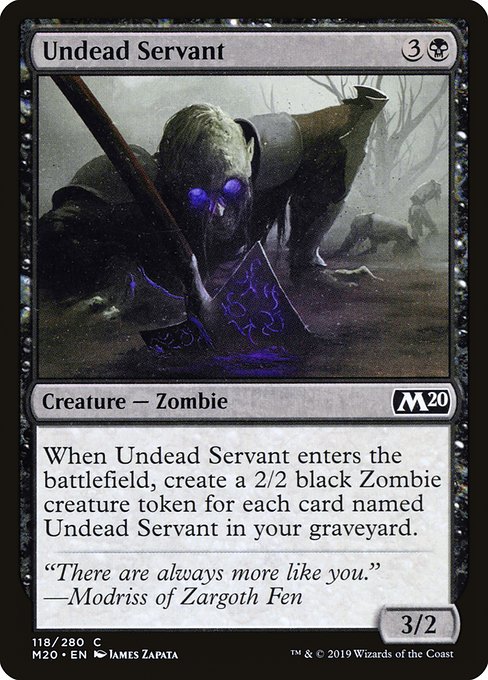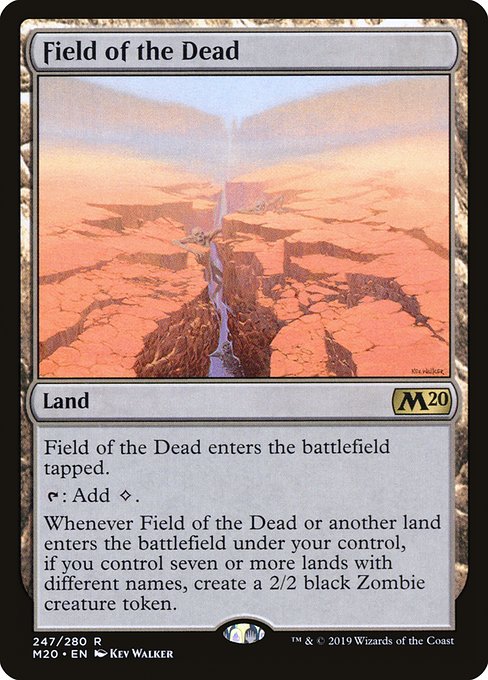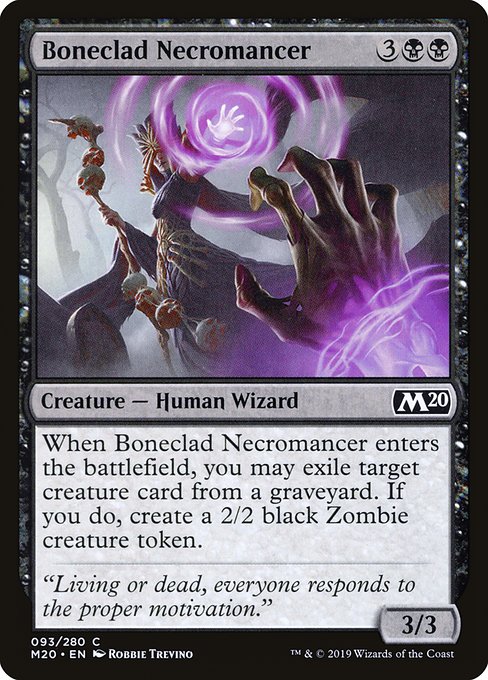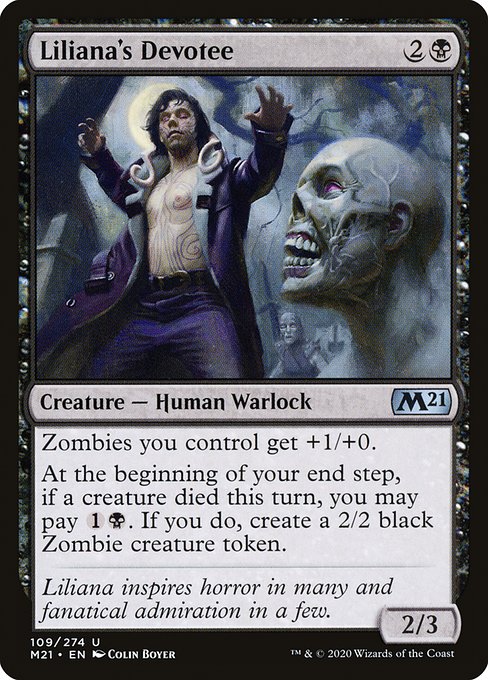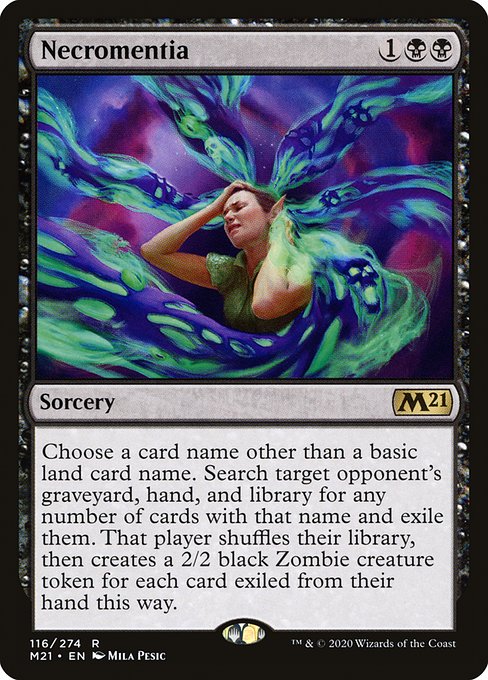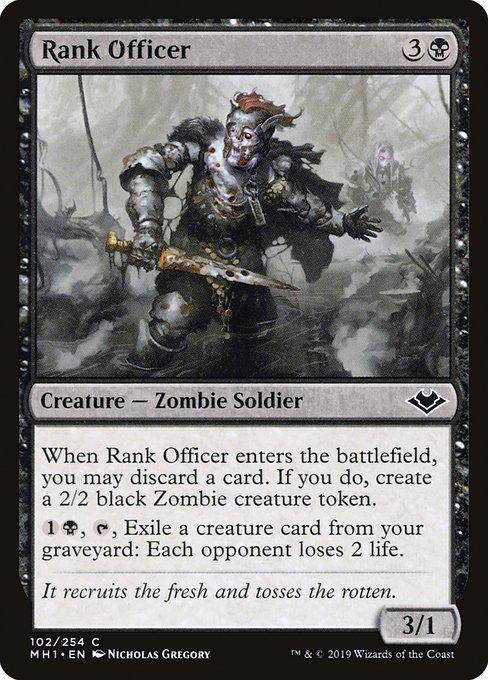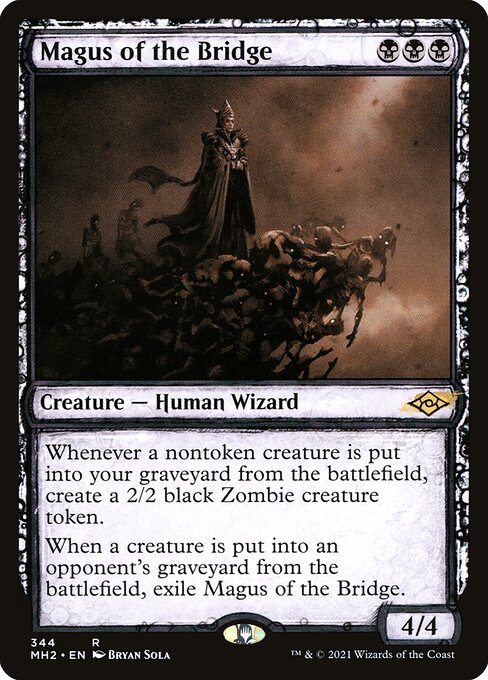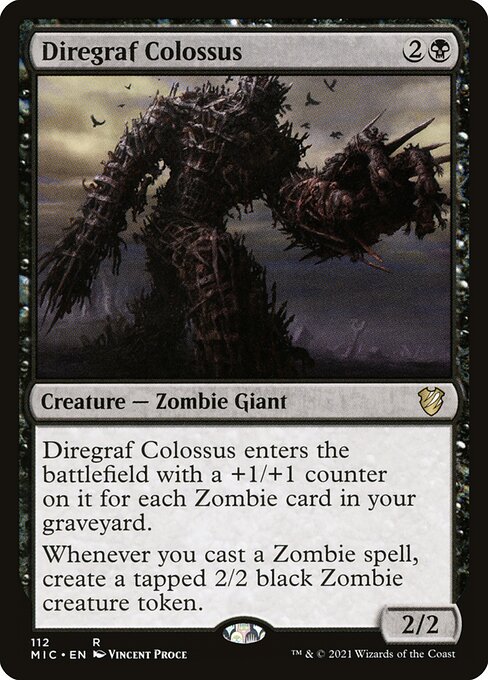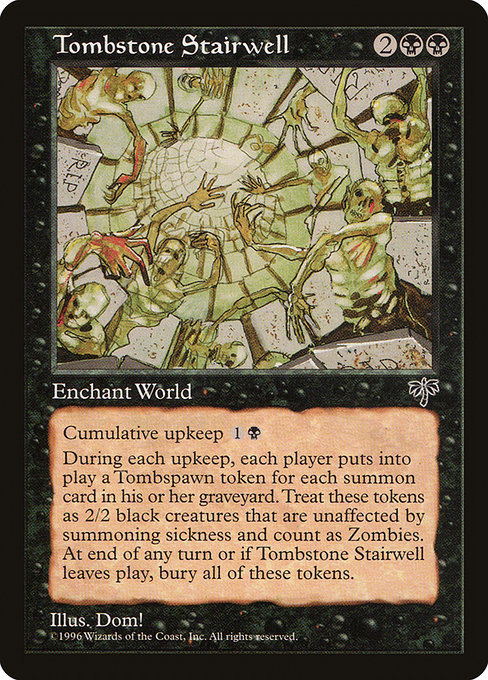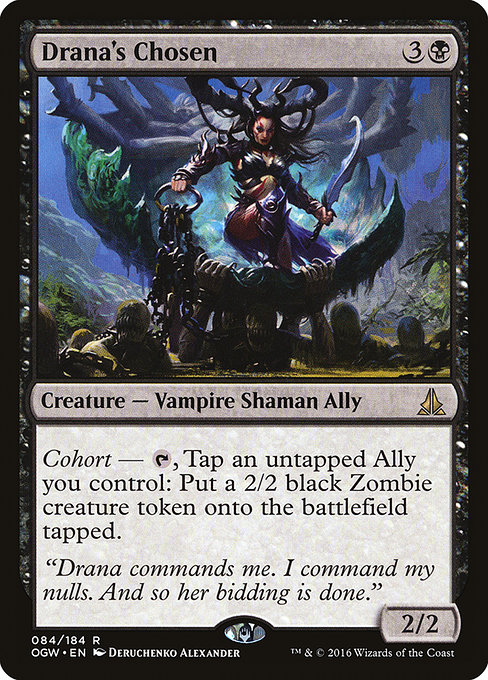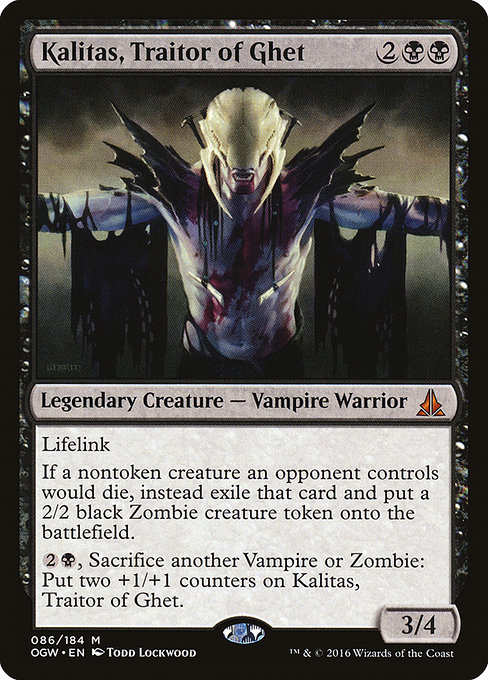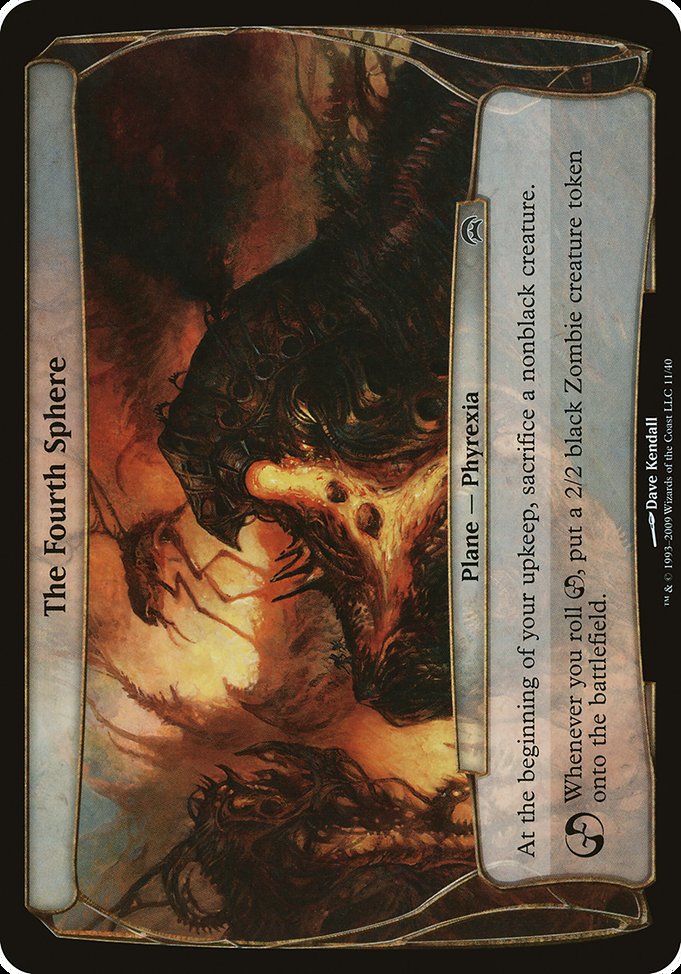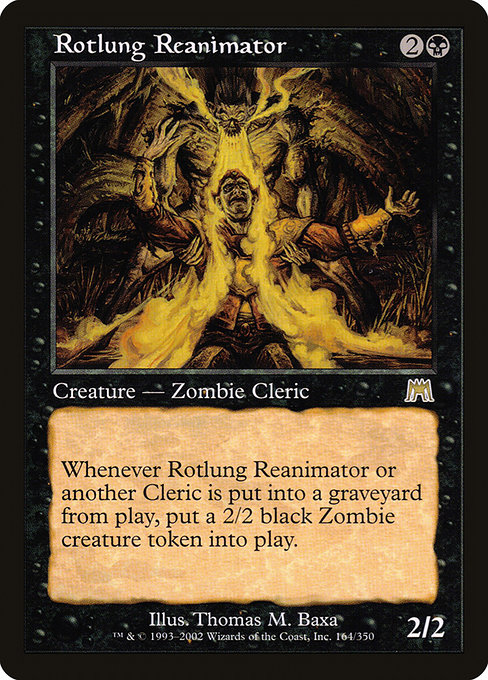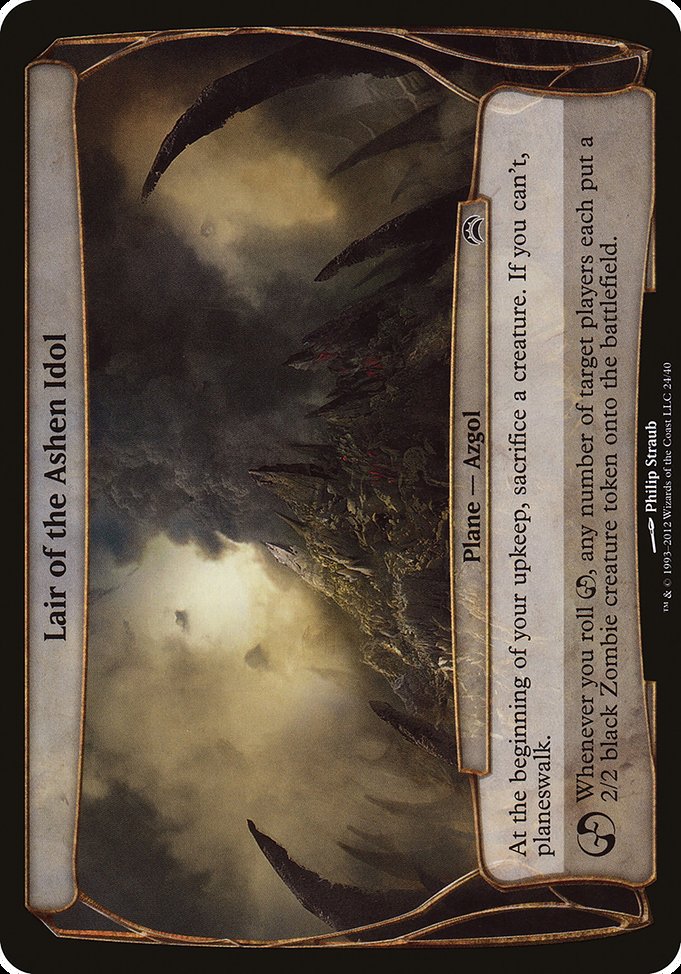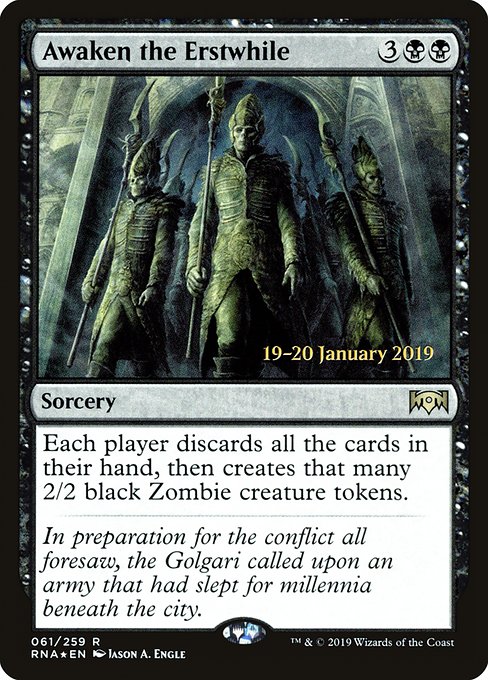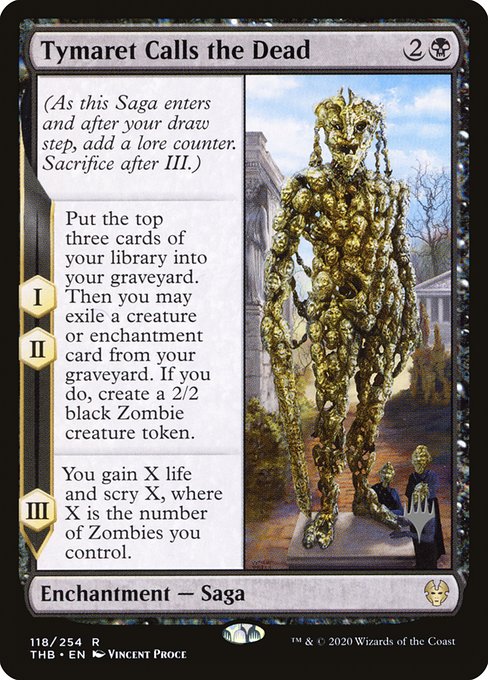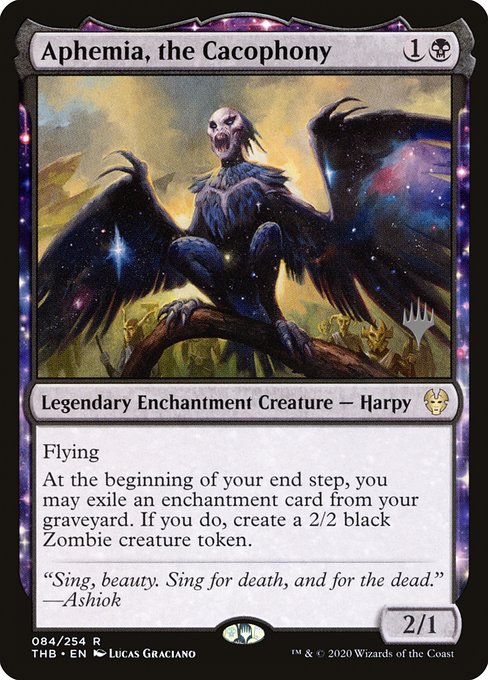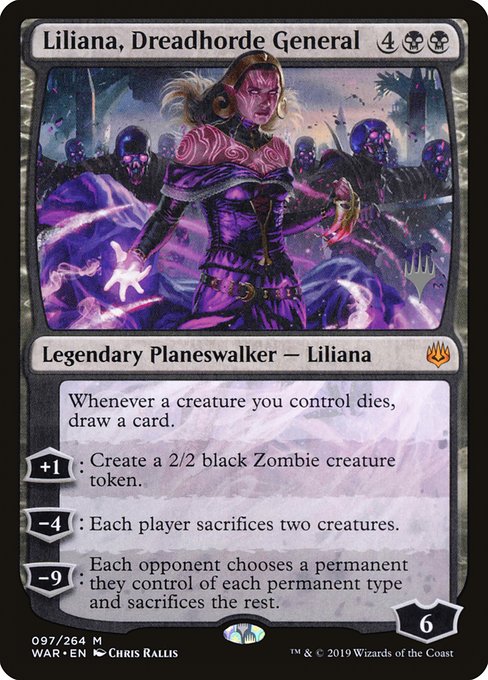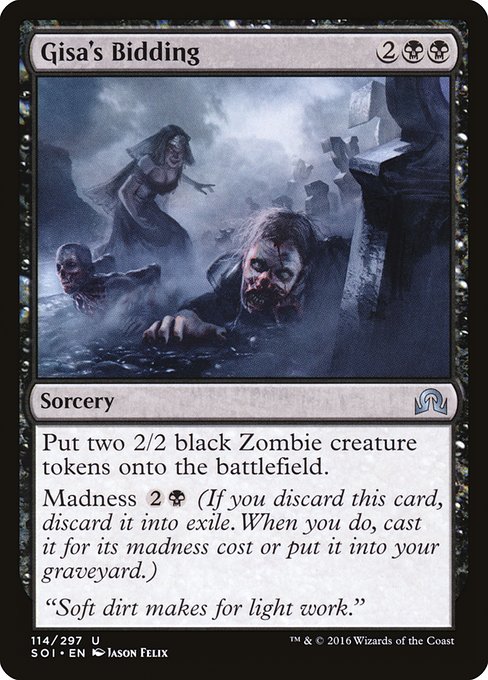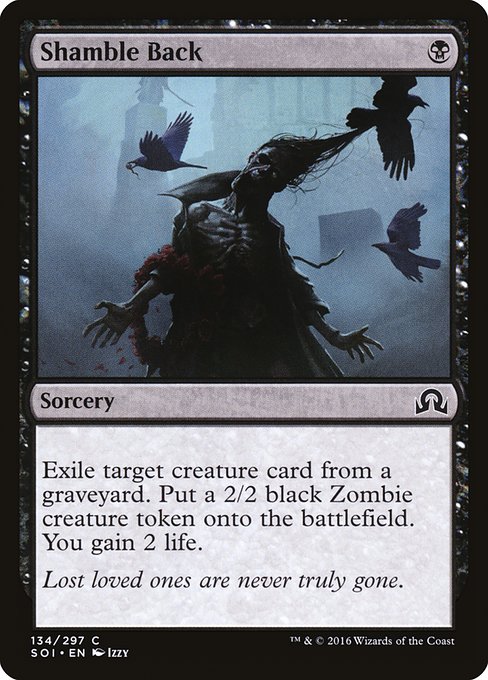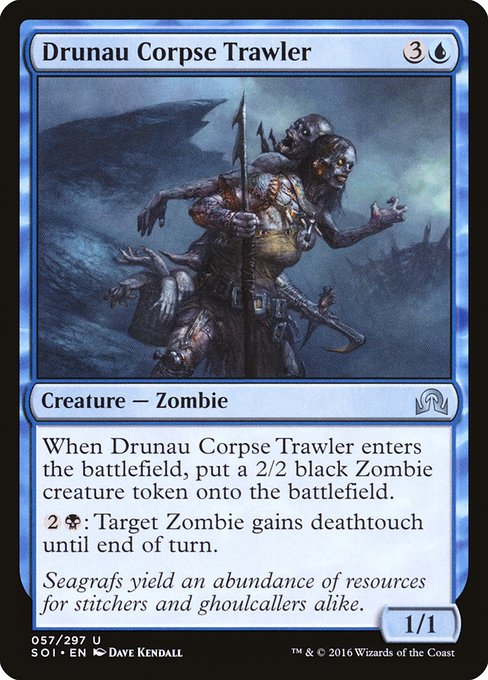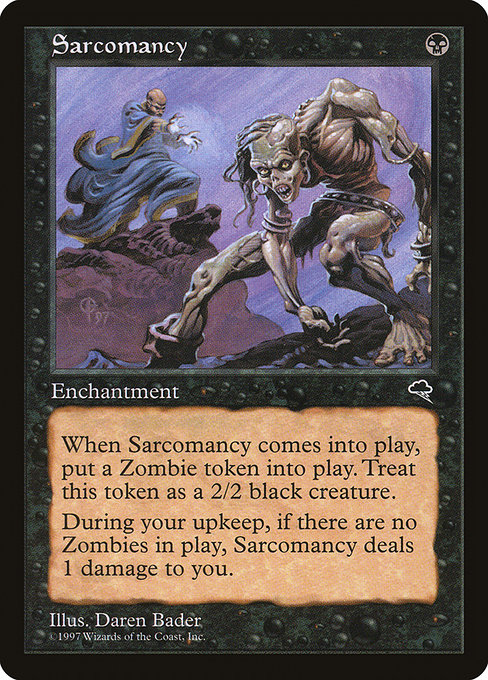Captive Audience
Enchantment
Captive Audience enters the battlefield under the control of an opponent of your choice.
At the beginning of your upkeep, choose one that hasn't been chosen —
• Your life total becomes 4.
• Discard your hand.
• Each opponent creates five 2/2 black Zombie creature tokens.
At the beginning of your upkeep, choose one that hasn't been chosen —
• Your life total becomes 4.
• Discard your hand.
• Each opponent creates five 2/2 black Zombie creature tokens.
standard
future
historic
gladiator
pioneer
explorer
modern
legacy
pauper
vintage
penny
commander
brawl
alchemy
paupercommander
duel
oldschool
premodern
Rulings
In a Two-Headed Giant game, Captive Audience’s first mode causes its controller to gain or lose life so that their team’s life total becomes 4.
In a multiplayer game, if Captive Audience’s owner leaves the game, Captive Audience leaves the game with them. If Captive Audience’s controller leaves the game, Captive Audience is exiled (assuming that player wasn’t also Captive Audience’s owner).
For a player’s life total to become 4, that player gains or loses the appropriate amount of life. For example, if a player’s life total is 20, Captive Audience will cause that player to lose 16 life; alternatively, if their life total is 1, it will cause them to gain 3 life. Other cards that interact with life gain or life loss will interact with this effect accordingly.
If all three modes have been chosen, Captive Audience’s triggered ability is removed from the stack with no effect, but Captive Audience remains on the battlefield.
Once Captive Audience is controlled by your opponent, its ability triggers during that player’s upkeep and that player makes all choices for it. That player is affected by its first two modes, and that player’s opponents create the tokens for its last mode.
You may choose Captive Audience’s first mode even if your life total is already 4. Similarly, you may choose its second mode even if you have no cards in hand.
In a multiplayer game, if Captive Audience’s owner leaves the game, Captive Audience leaves the game with them. If Captive Audience’s controller leaves the game, Captive Audience is exiled (assuming that player wasn’t also Captive Audience’s owner).
For a player’s life total to become 4, that player gains or loses the appropriate amount of life. For example, if a player’s life total is 20, Captive Audience will cause that player to lose 16 life; alternatively, if their life total is 1, it will cause them to gain 3 life. Other cards that interact with life gain or life loss will interact with this effect accordingly.
If all three modes have been chosen, Captive Audience’s triggered ability is removed from the stack with no effect, but Captive Audience remains on the battlefield.
Once Captive Audience is controlled by your opponent, its ability triggers during that player’s upkeep and that player makes all choices for it. That player is affected by its first two modes, and that player’s opponents create the tokens for its last mode.
You may choose Captive Audience’s first mode even if your life total is already 4. Similarly, you may choose its second mode even if you have no cards in hand.
Rulings
In a Two-Headed Giant game, Captive Audience’s first mode causes its controller to gain or lose life so that their team’s life total becomes 4.
In a multiplayer game, if Captive Audience’s owner leaves the game, Captive Audience leaves the game with them. If Captive Audience’s controller leaves the game, Captive Audience is exiled (assuming that player wasn’t also Captive Audience’s owner).
For a player’s life total to become 4, that player gains or loses the appropriate amount of life. For example, if a player’s life total is 20, Captive Audience will cause that player to lose 16 life; alternatively, if their life total is 1, it will cause them to gain 3 life. Other cards that interact with life gain or life loss will interact with this effect accordingly.
If all three modes have been chosen, Captive Audience’s triggered ability is removed from the stack with no effect, but Captive Audience remains on the battlefield.
Once Captive Audience is controlled by your opponent, its ability triggers during that player’s upkeep and that player makes all choices for it. That player is affected by its first two modes, and that player’s opponents create the tokens for its last mode.
You may choose Captive Audience’s first mode even if your life total is already 4. Similarly, you may choose its second mode even if you have no cards in hand.
In a multiplayer game, if Captive Audience’s owner leaves the game, Captive Audience leaves the game with them. If Captive Audience’s controller leaves the game, Captive Audience is exiled (assuming that player wasn’t also Captive Audience’s owner).
For a player’s life total to become 4, that player gains or loses the appropriate amount of life. For example, if a player’s life total is 20, Captive Audience will cause that player to lose 16 life; alternatively, if their life total is 1, it will cause them to gain 3 life. Other cards that interact with life gain or life loss will interact with this effect accordingly.
If all three modes have been chosen, Captive Audience’s triggered ability is removed from the stack with no effect, but Captive Audience remains on the battlefield.
Once Captive Audience is controlled by your opponent, its ability triggers during that player’s upkeep and that player makes all choices for it. That player is affected by its first two modes, and that player’s opponents create the tokens for its last mode.
You may choose Captive Audience’s first mode even if your life total is already 4. Similarly, you may choose its second mode even if you have no cards in hand.
Your collection? Your decks?
Want to manage your collection and/or create decks?
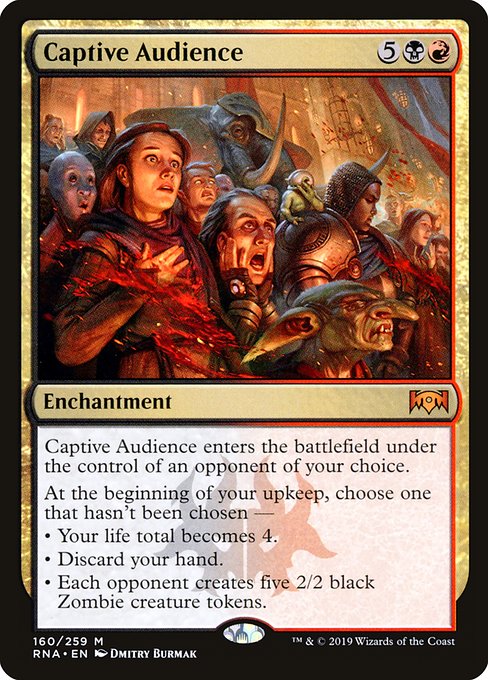

 0
0
 2.17€
2.17€
